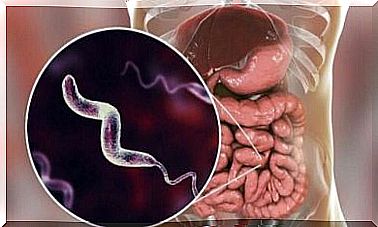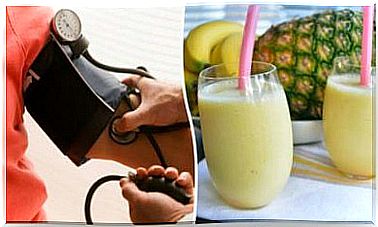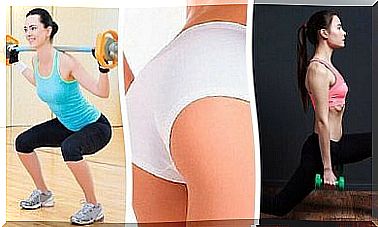Fluid Retention: Symptoms And Tips
Overweight, pregnancy, poor diet and a sedentary lifestyle are four factors that cause fluid retention.

When the body begins to hold back the fluids that it should be removing, it is called fluid retention or water retention. This condition more frequently affects women from the age of 40.
Very often fluid retention is caused by obesity, sedentary lifestyle, menstruation and an unbalanced diet high in sodium. Pregnancy and menopause are other factors that can cause fluid retention.
The symptoms will be more or less pronounced depending on the degree of water retention that is affecting you. If you feel bloated or have trouble losing weight and have even gained a few pounds when not overdoing it, it is very likely that you are suffering from fluid retention.
As a precaution, you should consult a doctor. If you suspect that you are having fluid retention, find out here what the symptoms are and some tips on how to remedy them as soon as possible.
Fluid retention: symptoms
Symptoms vary depending on the amount of fluid retained and the area where it occurs. However, the most common are those cited later in this article.
Swelling
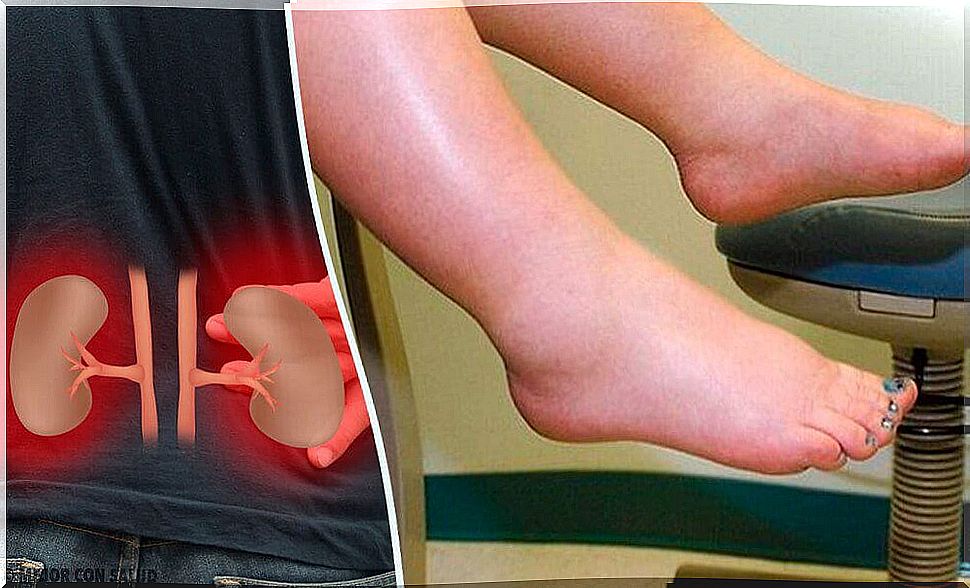
Symptoms of fluid retention can vary depending on how much fluid is retained and where it occurs in the body.
1. Swelling
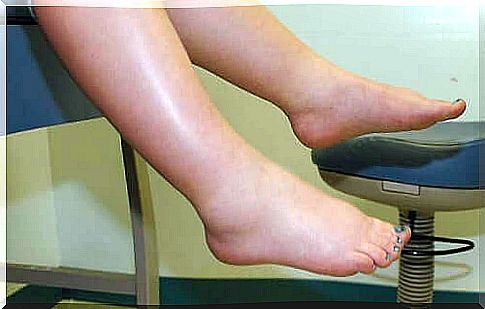
- Take a closer look at your feet and legs: these are the first areas affected by water retention. If you feel that your legs are swollen, tired, and heavier than usual, this is a warning sign.
- Swollen ankles are also a sign of water retention. This is an area that tends to be sensitive to water retention. It’s easy to notice because the shoes get too tight.
- The hands are another important warning. If your rings are squeezing you more and you have trouble removing them, it’s because your fingers are more swollen. This can be directly related to water retention. The same happens with other jewelry, such as bracelets or watches.
- A swollen face can also be a symptom.
- The stomach is one of the most affected areas of the body. The swelling of the abdomen is so noticeable that we can clearly notice that we have gained stomach.
Joint pain
The most important signs of fluid retention are usually caused by swelling in the joints.
If the pain is constant and occurs when you stand or sit for a long time, you are retaining water. This is what confirms this information from the American Society of Clinical Oncology.
Marks on the skin
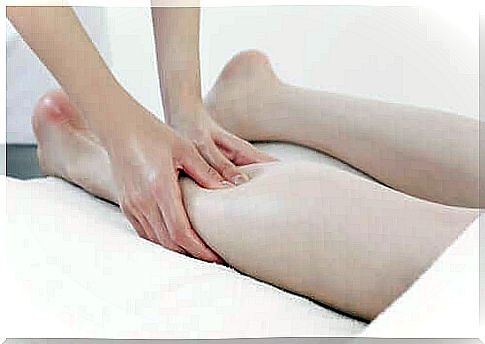
If when you put pressure on the skin it remains marked by the pressure, you are probably retaining water. See this information from the United States National Library of Medicine.
The most striking example is the mark left by wearing socks or stockings. If the socks generally fit well on your feet, it is very likely that your legs or ankles are swollen.
4. Weight gain
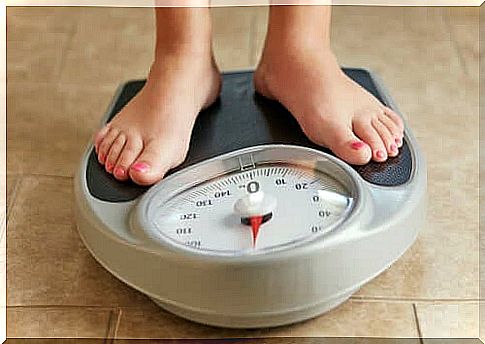
When you accumulate a lot of fluids, you can immediately gain weight. If you’ve gained weight on a balanced diet and not overdoing it, stay alert.
Weight gain can also be due to changes in metabolism such as during menopause. This is what confirms this study carried out by the pharmaceutical company CINFA. It is therefore advisable to consult a doctor in order to identify the cause.
Weigh yourself daily, especially in the morning and afternoon to check for any change.
Fluid retention: tips to avoid it
- Eat a low sodium diet. Foods high in salt and highly seasoned tend to promote fluid retention, as confirmed by this study by Diego Portales University (Chile).
- Don’t eat junk food. These foods contain too many chemicals and are very high in salt, which directly promotes fluid retention.
- Avoid having a sedentary lifestyle : exercise regularly. Physical activity allows your body to rid itself of toxins, which can be responsible for fluid retention, as this research from the University of Southern Chile asserts .
- If you work seated, you should get up every 30 minutes. This will help you avoid water retention in the legs, feet, and ankles. This claim has not been scientifically proven, but you don’t lose out on trying.
As we said above, fluid retention is a very common problem among middle aged women. If you think you may be affected, it is ideal that you consult your doctor so that he can prescribe the appropriate treatment.
In the meantime, you can follow the advice we have just given you.

